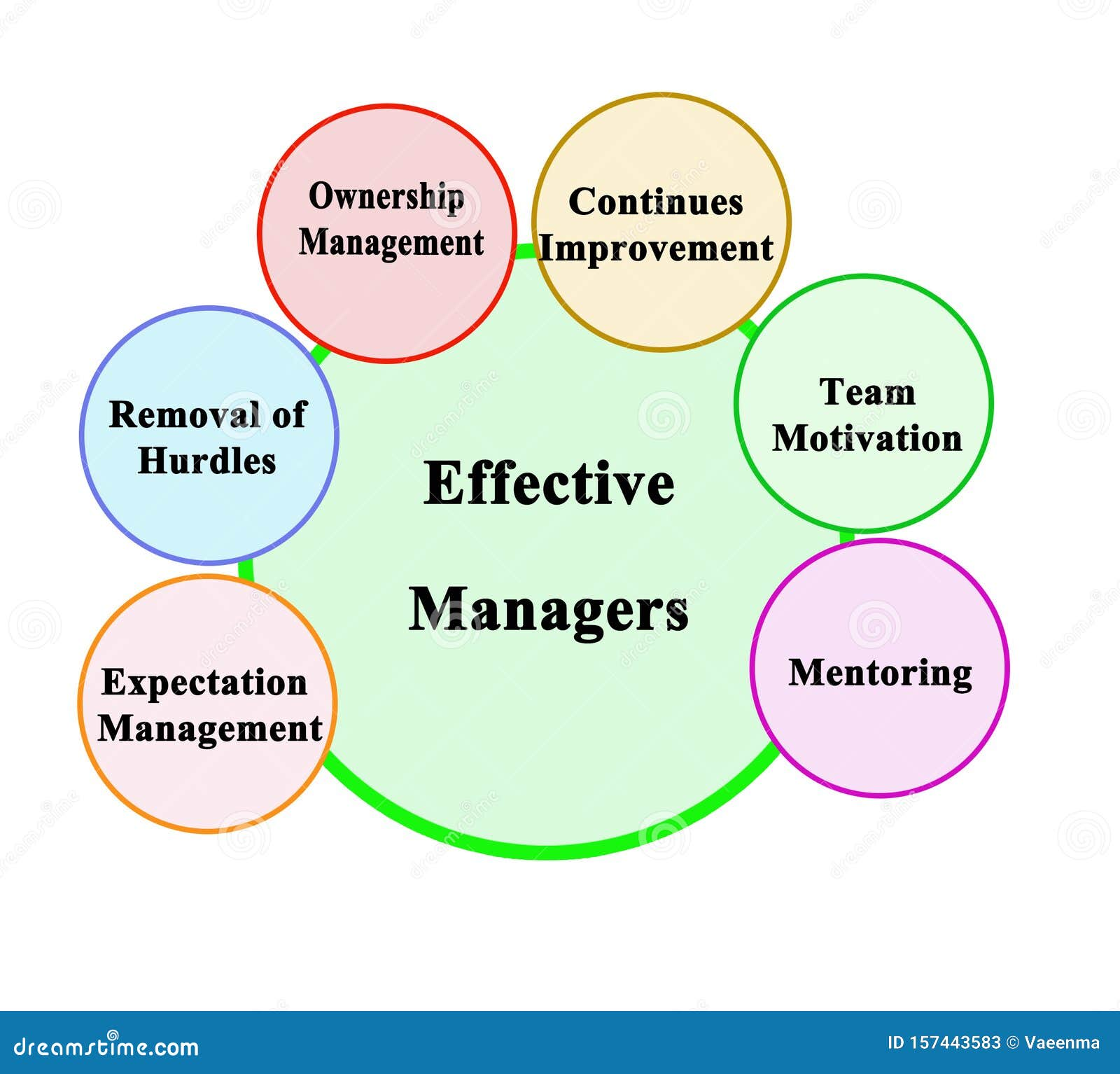Effective managers are the backbone of any successful organization, embodying qualities that drive teams toward achieving strategic goals. They harness essential managerial skills that blend interpersonal communication and analytical thinking, creating a harmonious work environment where employees feel valued and understood. The importance of management cannot be overstated; it directly influences productivity, employee satisfaction, and ultimately, the bottom line. Furthermore, the traits of good managers—like the ability to allocate resources efficiently and provide constructive feedback—play a critical role in determining a team’s overall performance. In an age where effective leadership is paramount, identifying these qualities can make the difference between a mediocre workplace and a thriving atmosphere.
In the realm of leadership, the distinction of stellar supervisors often lies in their managerial prowess. Known for their strong guidance and strategic decision-making, exceptional leaders possess various attributes that facilitate effective team dynamics. This encompasses the capacity for critical feedback, resource optimization, and inspiring motivation among team members. As organizations strive to thrive in competitive landscapes, the selection process for leadership roles becomes vital; prioritizing leadership qualities and decision-making capabilities could greatly enhance productivity. Understanding these dynamics offers an advantageous perspective on improving management practices across various sectors.
Understanding the Qualities of Good Managers
Qualities of good managers extend beyond just the ability to lead; they encompass a wide array of interpersonal and managerial skills. Effective managers require strong communication skills to foster an environment of psychological safety where team members feel valued and empowered to share their insights and concerns. This feeling of security allows for authentic feedback loops that enhance team dynamics and overall productivity. Moreover, a good manager must possess the ability to analyze complex situations and make informed decisions rapidly, which is crucial in today’s fast-paced work environments.
In addition, emotional intelligence is a vital quality—it enables managers to relate to their team members on a personal level, recognizing their strengths and weaknesses. This understanding assists in creating customized approaches to team management, ensuring that the diverse needs of individuals are met. By cultivating these qualities, organizations are not only investing in the immediate success of their teams but also in their long-term growth, underscoring the importance of effective management as a cornerstone of organizational success.
Why Effective Managers Are Essential to Organizational Success
Effective managers play a crucial role in navigating the complexities of modern organizations. They serve as the central figure in aligning team objectives with broader corporate goals, making it essential for them to possess a strategic vision that guides their actions. Through efficient resource allocation and task delegation, effective managers ensure that their teams work cohesively towards achieving set goals. The importance of management becomes evident when considering the intricate dynamics of supply and demand that companies face daily. Strong managerial leadership is necessary to steer the organization through these challenges and capitalize on available opportunities.
In many cases, the success or failure of a team can be traced back to the quality of their manager. Good managers not only inspire their teams but also cultivate a culture of accountability and performance excellence. Their influence extends beyond just meeting deadlines; they shape the overall work culture, impact employee satisfaction, and decrease turnover rates, therefore contributing to the company’s bottom line. Hence, recognizing the significance of effective managers as key drivers of success is paramount for organizations aiming for sustainable growth.
Managerial Skills: The Backbone of Leadership
Managerial skills are foundational to achieving successful outcomes in any organizational setup. These skills, which include strategic decision-making, effective communication, and team management, are pivotal in ensuring that managers can foster a productive work environment. According to recent studies, the ability to make sound economic decisions and allocate resources effectively stands out as one of the most predictive traits of managerial success. This economic-decision-making acumen allows managers to navigate fluctuating market conditions while optimizing their team’s potential.
Furthermore, leadership traits such as empathy, adaptability, and integrity also contribute significantly to a manager’s effectiveness. The importance of adaptability cannot be overstated, especially in today’s rapidly changing economic landscape. A manager must be responsive to both internal team dynamics and external market shifts, adjusting strategies to best guide their team towards achieving common objectives. Ultimately, the culmination of these managerial skills forms a robust foundation for effective leadership that drives organizational success.
Manager Selection Criteria: Finding the Right Fit
Identifying the right criteria for manager selection is crucial for organizational success. Traditional measures such as personality traits and years of experience often fall short in predicting management effectiveness. A more scientific approach that includes assessing cognitive abilities, such as IQ and problem-solving skills, has shown promising results in identifying effective managers. The ability to think critically and make informed decisions under pressure is a more accurate predictor of a candidate’s potential than merely assessing their interpersonal skills or previous managerial experience.
Incorporating economic-decision-making abilities as part of the selection criteria adds another layer of depth to the manager evaluation process. By prioritizing candidates who excel in resource allocation and strategic planning, organizations can significantly enhance their chances of selecting leaders who are not only capable of guiding teams but also driving overall business performance. Organizations that adopt these criteria will be better positioned to cultivate a robust management team that can effectively tackle the challenges of the ever-evolving business world.
The Importance of Management in Business Success
Management serves as the backbone of an organization, orchestrating various elements to ensure seamless operation and success. The importance of good management cannot be overstated, as it significantly impacts employee productivity, morale, and overall organizational culture. Effective managers are crucial for setting clear expectations, providing direction, and creating a supportive environment where employees can thrive. This synergy is essential for achieving strategic goals and maintaining competitive advantages in the industry.
Moreover, effective management directly correlates with the bottom line. Companies with skilled managers can better navigate complex challenges such as resource allocation, team collaboration, and market dynamics. By fostering a culture of accountability and innovation, effective managers not only enhance team performance but also drive higher profitability and growth. Thus, investing in strong management practices is not merely beneficial, but essential for long-term business success.
The Science Behind Identifying Effective Managers
Utilizing scientific methodologies to identify effective managers offers organizations a strategic advantage in optimizing their workforce. Recent studies suggest that relying on traditional attributes such as age, experience, and personality traits does not effectively predict management success. Instead, empirical tests that measure cognitive abilities and economic decision-making skills have proven more reliable indicators of effective managerial performance. By employing a more analytical approach to manager selection, organizations can uncover individuals who possess the critical traits necessary for effective leadership.
This data-driven approach allows companies to create a more objective management selection process, minimizing the biases often associated with traditional hiring practices. By understanding the correlation between specific skills and managerial effectiveness, organizations can streamline their recruitment processes, ensuring that they are not only filling positions but are also strategically fortifying their leadership with capable individuals who can inspire and lead their teams towards success.
Fostering Leadership Traits Among Managers
Developing strong leadership traits among managers is vital to establishing an empowered workforce capable of achieving high performance. Leadership traits, which include decisiveness, accountability, and the ability to motivate others, are essential for managers to cultivate a positive organizational culture. Programs aimed at enhancing these traits not only prepare individuals for managerial roles but also benefit the entire organization by promoting a culture of continuous improvement and innovation.
Moreover, mentorship and training programs focused on leadership development can play a significant role in nurturing these essential traits. Organizations that actively invest in their managers’ development are likely to see enhanced employee engagement, reduced turnover, and increased productivity. This proactive approach not only assures that the company has effective leaders at the helm but also fosters a culture where effective management qualities are valued and reinforced throughout the organization.
The Role of Analytical Methods in Manager Selection
Integrating analytical methods into the manager selection process is a modern necessity for organizations aiming for optimal employee performance. Research has demonstrated that conventional hiring practices often overlook critical predictors of managerial success, leading to ineffective leadership appointments. By employing analytical methods, companies can refine their selection criteria, focusing on empirical data that highlights the true competencies needed for managerial roles. This shift towards a more data-driven selection process enables organizations to identify candidates whose skills align closely with the demands of effective management.
Furthermore, these analytical approaches often include the implementation of structured assessments that measure cognitive abilities, situational judgment, and decision-making skills. By leveraging these tools, organizations can create a comprehensive overview of potential candidates’ abilities, thus strengthening their management teams. Adopting such progressive techniques not only enhances the efficiency of the hiring process but also ensures a more meaningful match between managerial roles and candidate capabilities, ultimately leading to improved organizational outcomes.
Empowering Effective Managers: The Key to Overall Productivity
Empowering effective managers is crucial for fostering a high-performing team environment. When managers possess the right skills and qualities, they can implement strategies that inspire their teams, reinforcing a sense of ownership and commitment to organizational objectives. A supportive management style encourages employees to voice their ideas and concerns, leading to innovative solutions and enhanced productivity. Effective managers create open channels of communication that facilitate feedback and collaboration, making them essential to maintaining morale and team cohesion.
Moreover, when organizations prioritize the empowerment of their managers through training and development, they directly influence the performance metrics that matter. By equipping managers with the necessary tools and resources, companies can expect to see significant improvements in both employee satisfaction and overall performance, as empowered managers can better align their teams’ goals with the organization’s strategic objectives. Ultimately, this level of investment in management not only yields tangible benefits but also reinforces a culture of excellence throughout the organization.
Frequently Asked Questions
What are the key qualities of effective managers that organizations should look for?
Effective managers possess a blend of interpersonal and analytical skills, crucial for fostering a psychologically safe environment. They should excel in communication, strategically understand team dynamics, and demonstrate the capacity to provide constructive feedback, all while being open to reassessing team performance.
How do managerial skills impact the effectiveness of managers in organizations?
Managerial skills such as resource allocation, decision-making abilities, and interpersonal communication significantly influence a manager’s effectiveness. Skilled managers can motivate their teams, prioritize tasks effectively, and address challenges adeptly, leading to enhanced organizational performance.
Why is the selection of effective managers critical for organizational success?
Selecting effective managers is vital because they are tasked with navigating complex strategic landscapes. Their decisions directly affect resource allocation, team dynamics, and overall productivity, making their role essential in achieving organizational objectives and success.
What managerial traits should companies prioritize during manager selection?
Companies should prioritize traits that signal strong decision-making and resource allocation skills, rather than relying solely on traditional preferences like personality or experience. High IQ and demonstrated economic-decision-making skills have been shown to be more predictive of effective management.
What is the importance of effective management in today’s corporate landscape?
Effective management is crucial as organizations face a myriad of strategic challenges. Managers must effectively delegate responsibilities, communicate expectations, and nurture their teams’ strengths and weaknesses, which ultimately drives productivity and organizational success.
Can overconfidence in leadership preferences hinder the effectiveness of managers?
Yes, research indicates that individuals who strongly desire to lead often underperform compared to those randomly assigned managerial roles. Overconfidence can skew their self-perception, leading to ineffective management practices.
What are the best predictors of effective management according to recent studies?
Recent studies highlight IQ and economic-decision-making skills as the most reliable predictors of effective management. These competencies directly relate to the tasks and environments managers operate in, making them crucial for evaluating managerial potential.
| Key Points | Details | |
|---|---|---|
| Good Managers Are Hard to Find | Effective managers possess a blend of skills that are often rare. | |
| Predictors of Managerial Effectiveness | Two key measures predict effective managers: IQ (Raven’s test) and economic-decision-making skill. | |
| Flawed Selection Criteria | Many companies focus on personality traits, age, or experience, which do not correlate with management success. | |
| Overconfidence of Self-Nominated Managers | Desiring to lead can result in lower performance due to overconfidence and lack of actual managerial skills. | |
| Importance of Management Skills | Effective managers identify priorities, coordinate tasks, and provide valuable feedback to optimize team performance. | |
| Scientific Approach to Manager Selection | A systematic method to measure and identify effective managers can enhance organizational productivity. | |
| Rich Potential for Improvement | Identifying effective managers can unlock significant productivity improvements within organizations. | |
Summary
Effective managers are essential for the success of any organization, as they navigate complex challenges and drive team productivity. A recent study illustrates that traditional methods of selecting managers based on personality traits are ineffective; rather, organizations should focus on measurable skills such as IQ and economic-decision-making ability. By adopting a scientific approach to manager selection, companies can better identify leaders who will optimize performance, making the pursuit of effective management a priority for progressive organizations.










